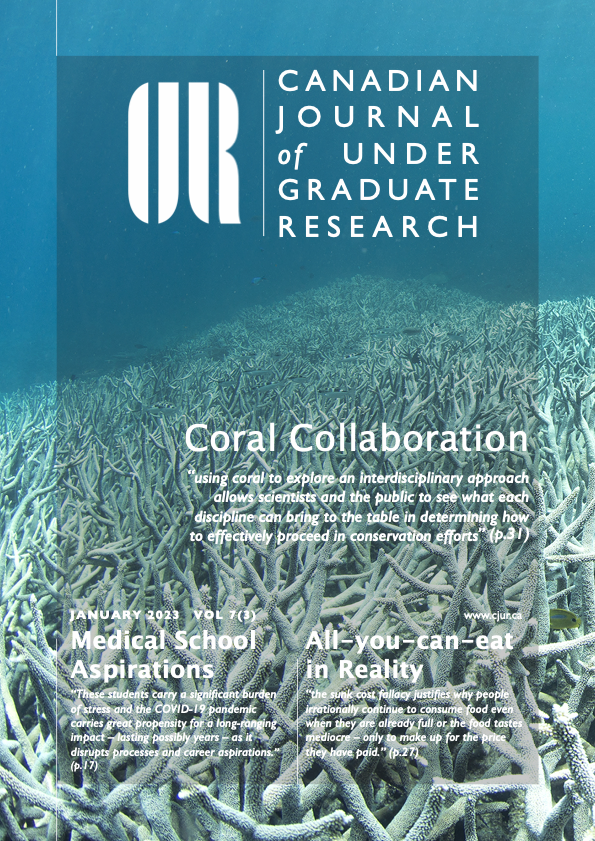Conservation, Climate Change, and Interdisciplinary Collaborations
Abstract
Anthropogenic (human caused) pollutants are continuing to show their impacts on the environment. For decades scientists have been studying these effects and what they mean for life on Earth. Such effects on nature include increased species extinction rates and climate change. However, these two elements are not separate. Due to this fact, an interdisciplinary approach to conservation needs to be formed to address the increasing species extinction rates. Coral conservation is a prominent issue in both media and the lab. Thus, using coral to address an interdisciplinary approach allows people to see what each discipline can bring to the table in determining how to effectively proceed in conservation efforts. Though there are a continually increasing number of scientific disciplines, for this article the disciplines addressed are marine biology, cell biology, ecology, physics, chemistry, conservation, environmental science, and climate science. Thus, through an interdisciplinary approach, conservation can assess situations from the macro to the micro and from the ecosystem to the individual.
Published
Issue
Section
License
Authors who publish with this journal agree to the following terms:
- Authors retain copyright and grant the journal right of first publication with the work simultaneously licensed under a Creative Commons Attribution License that allows others to share the work with an acknowledgement of the work's authorship and initial publication in this journal.
- Authors are able to enter into separate, additional contractual arrangements for the non-exclusive distribution of the journal's published version of the work (e.g., post it to an institutional repository or publish it in a book), with an acknowledgement of its initial publication in this journal.
- Authors are permitted and encouraged to post their work online (e.g., in institutional repositories or on their website) prior to and during the submission process, as it can lead to productive exchanges, as well as earlier and greater citation of published work (See The Effect of Open Access).

